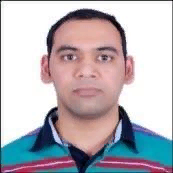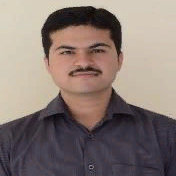International Journal of Image, Graphics and Signal Processing (IJIGSP)
IJIGSP Vol. 14, No. 6, 8 Dec. 2022
Cover page and Table of Contents: PDF (size: 997KB)
A Comparative Analysis of Lossless Compression Algorithms on Uniformly Quantized Audio Signals
Full Text (PDF, 997KB), PP.59-69
Views: 0 Downloads: 0
Author(s)
Index Terms
Audio Compression, Lossless Compression, Lempel-Ziv-Welch (LZW), Huffman, Arithmetic, Run Length Encoding (RLE), Uniform Quantization, Compression Ratio, Signal-to-Noise Ratio (SNR).
Abstract
This paper analyses the performance of various lossless compression algorithms employed on uniformly quantized audio signals. The purpose of this study is to enlighten a new way of audio signal compression using lossless compression algorithms. The audio signal is first transformed into text by employing uniform quantization with different step sizes. This text is then compressed using lossless compression algorithms which include Run length encoding (RLE), Huffman coding, Arithmetic coding and Lempel-Ziv-Welch (LZW) coding. The performance of various lossless compression algorithms is analyzed based on mainly four parameters, viz., compression ratio, signal-to-noise ratio (SNR), compression time and decompression time. The analysis of the aforementioned parameters has been carried out after uniformly quantizing the audio files using different step sizes. The study exhibits that the LZW coding can be a potential alternative to the MP3 lossy audio compression algorithm to compress audio signals effectively.
Cite This Paper
Sankalp Shukla, Ritu Gupta, Dheeraj Singh Rajput, Yashwant Goswami, Vikash Sharma, "A Comparative Analysis of Lossless Compression Algorithms on Uniformly Quantized Audio Signals", International Journal of Image, Graphics and Signal Processing(IJIGSP), Vol.14, No.6, pp. 59-69, 2022. DOI:10.5815/ijigsp.2022.06.05
Reference
[1]Anup, Anshul & Ashok, Ravi &Raundale, Pooja. (2019). Comparative Study of Data Compression Techniques. International Journal of Computer Applications. 178. 15-19. 10.5120/ijca2019919104.
[2]A. Gopinath and M. Ravisankar, "Comparison of Lossless Data Compression Techniques," 2020 International Conference on Inventive Computation Technologies (ICICT), 2020, pp. 628-633, doi: 10.1109/ICICT48043.2020.9112516.
[3]T. Hidayat, M. H. Zakaria and A. N. C. Pee, "Survey of Performance Measurement Indicators for Lossless Compression Technique based on the Objectives," 2020 3rd International Conference on Information and Communications Technology (ICOIACT), 2020, pp. 170-175, doi: 10.1109/ICOIACT50329.2020.9332044.
[4]Sheraj, Mohammad & Chopra, Ashish. (2020). Data Compression Algorithm for Audio and Image using Feature Extraction. 1-6. 10.1109/ICCCSP49186.2020.9315248.
[5]Uthayakumar Jayasankar, Vengattaraman Thirumal, Dhavachelvan Ponnurangam, “A survey on data compression techniques: From the perspective of data quality, coding schemes, data type and applications,” Journal of King Saud University - Computer and Information Sciences, Volume 33, Issue 2, 2021, Pages 119-140, ISSN 1319-1578, https://doi.org/10.1016/j.jksuci.2018.05.006.
[6]Ashida, S. &Kakemizu, H. & Nagahara, Masaaki & Yamamoto, Yutaka. (2004). Sampled-data audio signal compression with Huffman coding. 972 - 976 vol. 2.
[7]S. Shukla, M. Ahirwar, R. Gupta, S. Jain and D. S. Rajput, "Audio Compression Algorithm using Discrete Cosine Transform (DCT) and Lempel-Ziv-Welch (LZW) Encoding Method," 2019 International Conference on Machine Learning, Big Data, Cloud and Parallel Computing (COMITCon), 2019, pp. 476-480, doi: 10.1109/COMITCon.2019.8862228.
[8]Dudhagara, Chetan & Patel, Hasamukh. (2017). Performance Analysis of Data Compression Using Lossless Run Length Encoding. Oriental journal of computer science and technology. 10. 703-707. 10.13005/ojcst/10.03.22.
[9]Khalid Sayood. Introduction to Data Compression. Elsevier Inc., San Francisco, CA, 2006.
[10]N. Dhawale, "Implementation of Huffman algorithm and study for optimization," 2014 International Conference on Advances in Communication and Computing Technologies (ICACACT 2014), 2014, pp. 1-6, doi: 10.1109/EIC.2015.7230711.
[11]Gaurav Kumar, Er. Sukhreet Singh Brar, Rajeev Kumar, Ashok Kumar, "A Review: DWT-DCT Technique and Arithmetic-Huffman Coding based Image Compression", IJEM, vol.5, no.3, pp.20- 33, 2015. DOI: 10.5815/ijem.2015.03.03.
[12]Gajendra Sharma, “Analysis of Huffman Coding and Lempel–Ziv–Welch (LZW) Coding as Data Compression Techniques,” International Journal of Scientific Research in Computer Science and Engineering, Vol.8, Issue.1, pp.37-44, 2020.
[13]Witten, Ian & H, Ian & Neal, & M, Radford & Cleary, & G, John. (1987). Arithmetic Coding for Data Compression. Communications of the ACM. 30. 520-. 10.1007/978-0-387-30162-4_34.
[14]J. Ziv and A. Lempel, "A universal algorithm for sequential data compression," in IEEE Transactions on Information Theory, vol. 23, no. 3, pp. 337-343, May 1977, doi: 10.1109/TIT.1977.1055714.
[15]J. Ziv and A. Lempel, "Compression of individual sequences via variable-rate coding," in IEEE Transactions on Information Theory, vol. 24, no. 5, pp. 530-536, September 1978, doi: 10.1109/TIT.1978.1055934.
[16]Welch, "A Technique for High-Performance Data Compression," in Computer, vol. 17, no. 6, pp. 8-19, June 1984, doi: 10.1109/MC.1984.1659158.
[17]M. Alsenwi, T. Ismail and H. Mostafa, "Performance analysis of hybrid lossy/lossless compression techniques for EEG data," 2016 28th International Conference on Microelectronics (ICM), 2016, pp. 1-4, doi: 10.1109/ICM.2016.7847849.




